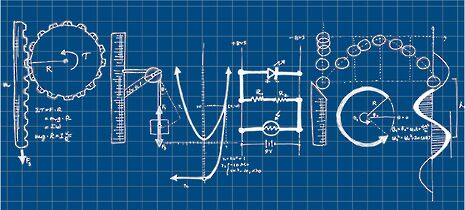Science Report
A phone app which claims to track the user’s mood created by Cambridge researchers, and academics from the university to help sixth-form physics students as part of a £7m boost to the subject

Researchers at the University of Cambridge have developed an app that tracks happiness by combining smartphone data with users' perception of mood.
Emotion Sense collects data from the user’s phone, including their location, the number of text messages sent, the level of noise in their environment, and who they communicate with. This is in addition to information inputted by the user when prompted with questions throughout the day. It is thought that it is the first time that the two methods of collecting data have been combined.
Designers say the app will collect a “very precise record of what drives people's emotional peaks, showing, for example, when they are likely to be at their most stressed, or when they feel most relaxed.”
The team that created the app hope that smartphones play a large part in monitoring and improving behaviour and well-being, given the increasingly sophisticated components of phones which the app makes use of, such as GPS, accelerometer and microphone.
“Most people who see a therapist may only have an appointment once every fortnight,” says Dr Cecilia Mascolo, a reader in mobile systems at the Cambridge Computer Lab. “Many, however, keep their phones with them most of the time. In terms of sheer presence, mobiles can provide an on-going link with a person.”

Academics from the University of Cambridge will provide A-level Physics students with master-classes, training for teachers and create a bank of resources to entice more students into studying physics at university level.
A total of £6.9m has been allocated for the next five years by the Department for Education in a bid to boost A-level performance in the subject.
Mark Warner, professor of theoretical physics, who is leading the programme, said it would enable the university to “reach almost all school physics students in the UK”. He said he hoped that the project “will result in an increase in the number of talented and ambitious young physicists with the skills to make strong applications to university."
A report published by the Institute of Physics in 2011 warned that A-levels were failing to teach pupils enough maths to study physics and engineering at university.
Physics has gained popularity in the last few years. At degree level, numbers enrolling on undergraduate physics courses have increased by 50 per cent in eight years.
The university said it was hoped that the project would “enable more students from all backgrounds to gain physics expertise beyond school level, encourage more students to apply for physics, engineering and mathematics at highly-selective universities throughout the UK and equip them to best demonstrate their academic potential.”
 News / SU reluctantly registers controversial women’s soc18 December 2025
News / SU reluctantly registers controversial women’s soc18 December 2025 Features / Should I stay or should I go? Cambridge students and alumni reflect on how their memories stay with them15 December 2025
Features / Should I stay or should I go? Cambridge students and alumni reflect on how their memories stay with them15 December 2025 News / Dons warn PM about Vet School closure16 December 2025
News / Dons warn PM about Vet School closure16 December 2025 News / Cambridge study finds students learn better with notes than AI13 December 2025
News / Cambridge study finds students learn better with notes than AI13 December 2025 News / Uni registers controversial new women’s society28 November 2025
News / Uni registers controversial new women’s society28 November 2025









